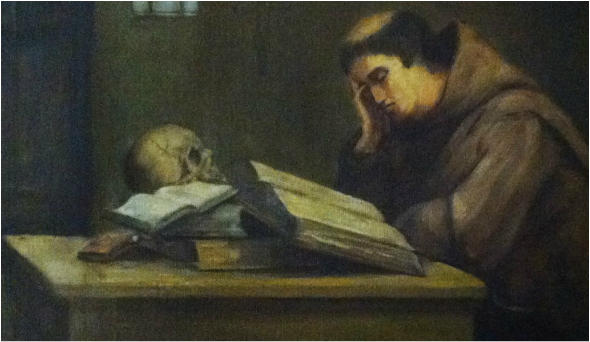 In Psychology and Religion, the word “grounding” is thrown around quite a bit. Therapists often use the term to refer to clients finding a sense of stability in order to do difficult inner work. Religious traditions may encourage participants to latch onto doctrine or spiritual ideas. Yet, the word “grounding” gives off the essence of connecting to the earth itself. Though pursuing a sense of self and spiritual beliefs can be an important part of one’s life journey, we are also all inevitably living a physical journey on this planet. The earth is an important symbol in many religious and cultural traditions. In ancient Celtic, Greek, Indian and Egyptian lore, the earth is personified and seen as the source of energy and life. And it is. We don’t need even to read ancient stories to realize that the earth brings forth life and breaks it down in an on going cycle. From the earth we get food, shelter, water and air. We owe our existence and our survival to the earth itself. Yet, so often the earth is taken for granted. We look out to the heavens in a quest for spiritual transformation or deliverance, and forget about the vast expanse of energy and life that lies right beneath our feet. In electrical engineering, grounding is vitally important. A connection to the earth itself turns a potentially lethal electric current into a useful source of energy. The earth can also be used as a conductor of that energy. Without grounding to the earth, there is no way to control or utilize the powerful electric forces. In our lives, we have so many forces to contend with; relationships, emotions, thoughts and assumptions, expectations, beliefs and values. At times, these things get the best of us. We feel thrown into a tailspin of confusion and powerlessness. What we desperately seek is some form of stability, somewhere safe and sturdy to land. Grounding to the earth means to make a commitment to be right here, right now. In this physical place, in this time. Not a few days ahead, not on a beach in our mind, but right here. Here with all of these things that we may or may not want. Here with uncomfortable emotions, here in this particular environment with these particular people. Here in this body as it is in this moment. There is power in this place of grounding, though it may not seem obvious. There is potential waiting. To tap into the earth means to tap into that great source of life and vitality that the ancients all wrote so passionately about. This week, ask yourself if you are grounding to the earth in this point in time. What keeps you from being fully present in this place? What do you need in order to ground right now in your life? What can you let go of to begin to put down roots in your physical home?
0 Comments
In the United States today, the majority of people polled identify themselves with a specific religious institution. Christianity, Buddhism and Islam are among the top three named. It’s relatively easy for most people to pinpoint values that these religious doctrines encompass: charity, forgiveness, love, compassion, etc. One might assume that people belonging to these religious communities would serve these values. Yet it’s just as probable that all of us, religious or not, are serving values we don’t even recognize.
Richard Naegle, a Jungian oriented psychologist, espouses that all of us serve something or someone. We bow down to ideas of who we are or what we want to be. We bow down to emotions, traumas, and ideals. We even bow down to the standards society has set for us. These “gods” are subtle. We probably don’t recognize how they influence us on a daily basis. We can be sure, however, that our reverence to them is affecting our own reality. As Naegle says, whatever we serve becomes our master. This can be a hallowing revelation. It is discouraging to think our own blindness may have kept us in dark and unhappy places. Yet, it can also be a wake up call and an opportunity to realize just how powerful our willingness to live with our eyes wide open can be. A Zen saying says: “The hunter who chases two rabbits catches neither one.” This proverb is paralleled in other religious texts. The Bible reads, “No one can serve two masters. Either you will hate the one and love the other, or you will be devoted to the one and despise the other.” The Koran includes, “Allah has not made for any man two hearts in his (one) body.” Obviously mankind has recognized this polarization for some time as well as the pull to serve what will undoubtedly lead us astray. In Acceptance and Commitment Therapy (ACT), the client is given the opportunity to clarify values and reflect on how decisions and behaviors she has engaged in have lined up with those values. She begins to discover what has kept her from living congruently with her beliefs and values and how she may have to change to accommodate them. 1. This week, examine your intrinsic values. What kind of person do you want to be in this world? How do you want to be in relationships? 2. Ask yourself what your most recent thoughts, behaviors and reactions reveal that you are serving? Do you make decisions based on your values, or are they made in fear, influenced by pride or guilt? Are you listening to yourself or just trying to placate the values of others? 3. What would have to change for you to live more in line with your values? What transformation would need to happen in your mind and heart in order to be who you want to be in this world? How can you begin to take control of making that happen? |
The Spirit of TherapyWhere psychotherapy interacts with our mental, emotional, spiritual, physical and relational wellbeing. Categories
All
Archives
December 2014
|

 RSS Feed
RSS Feed